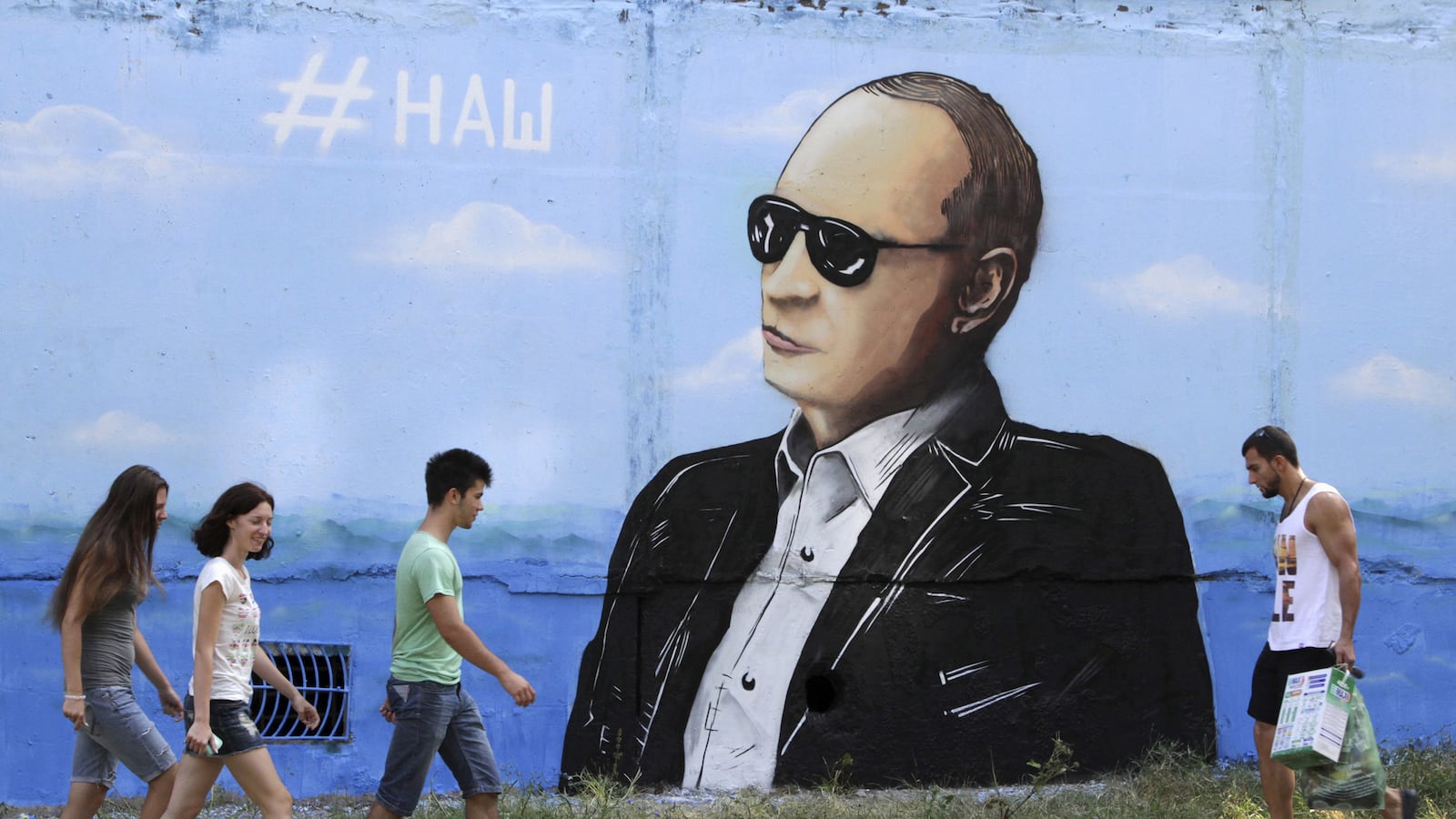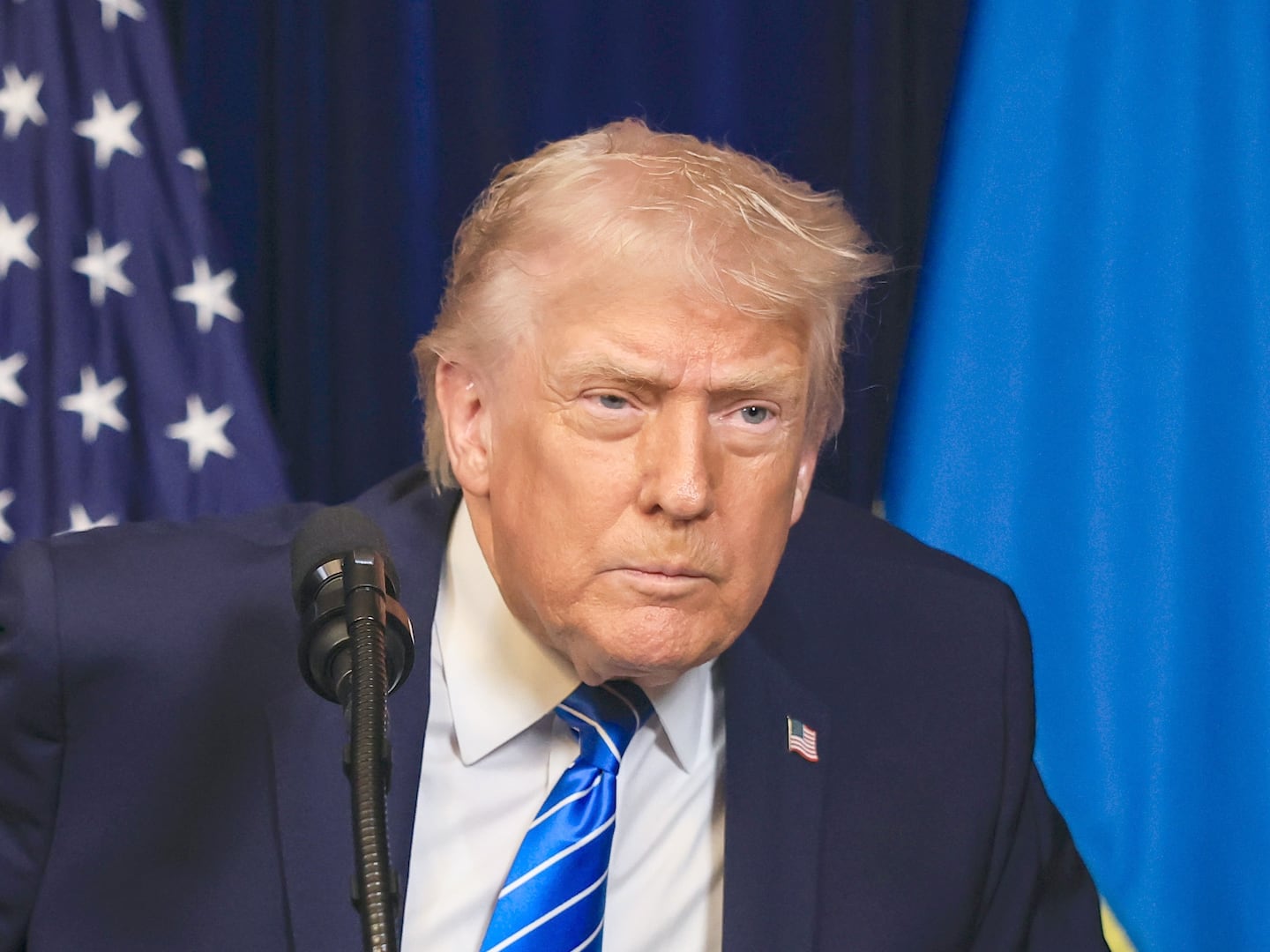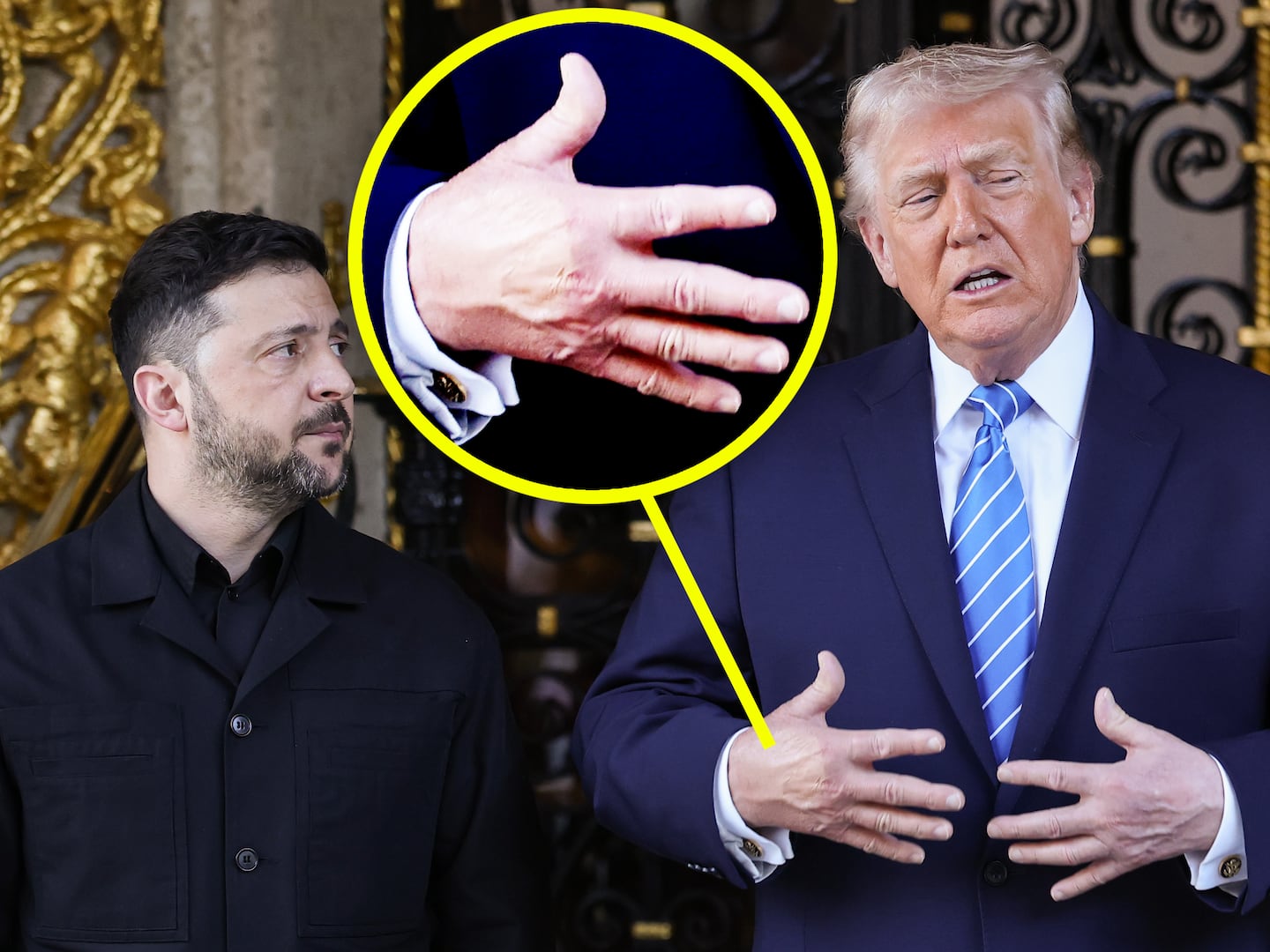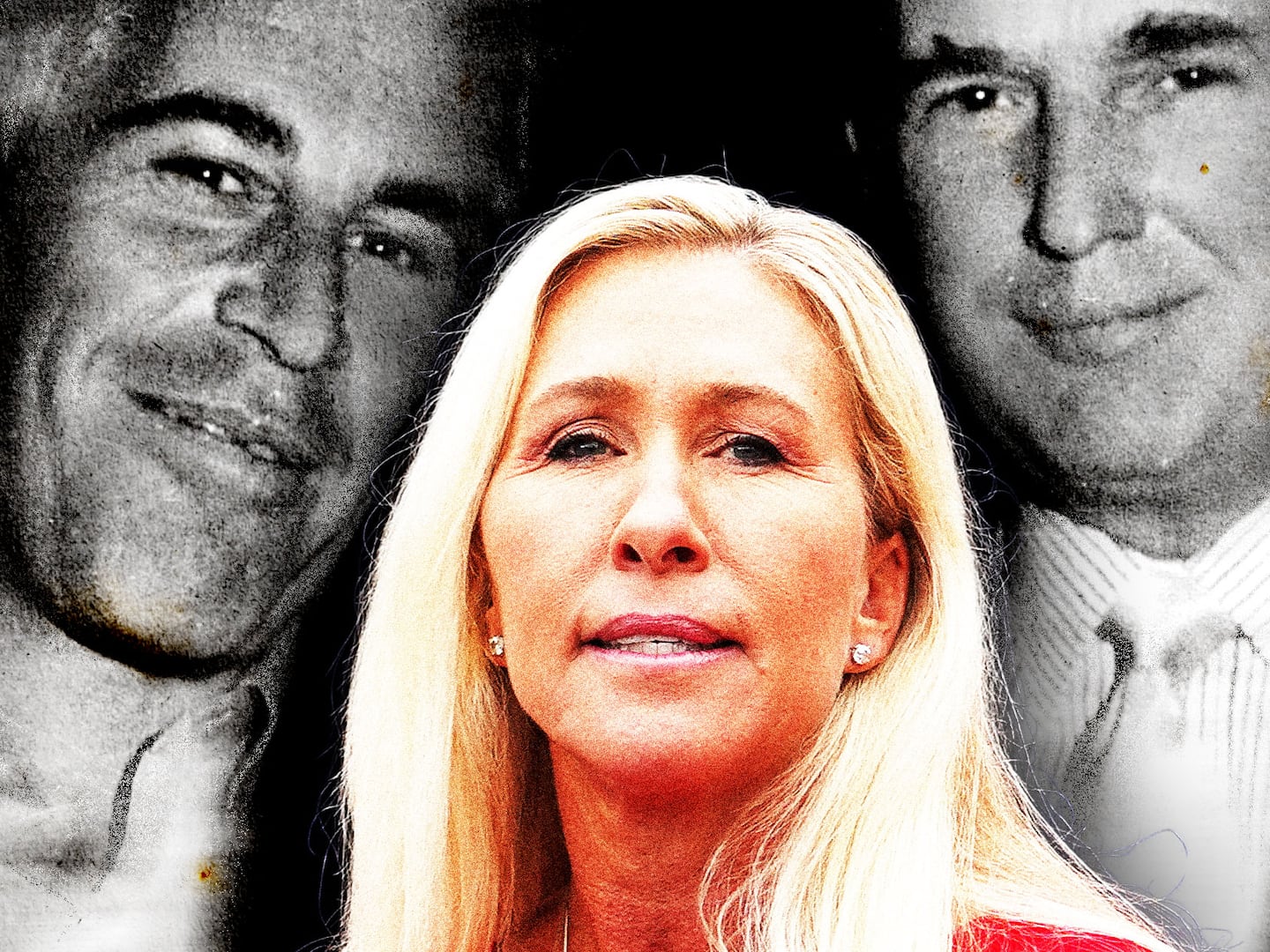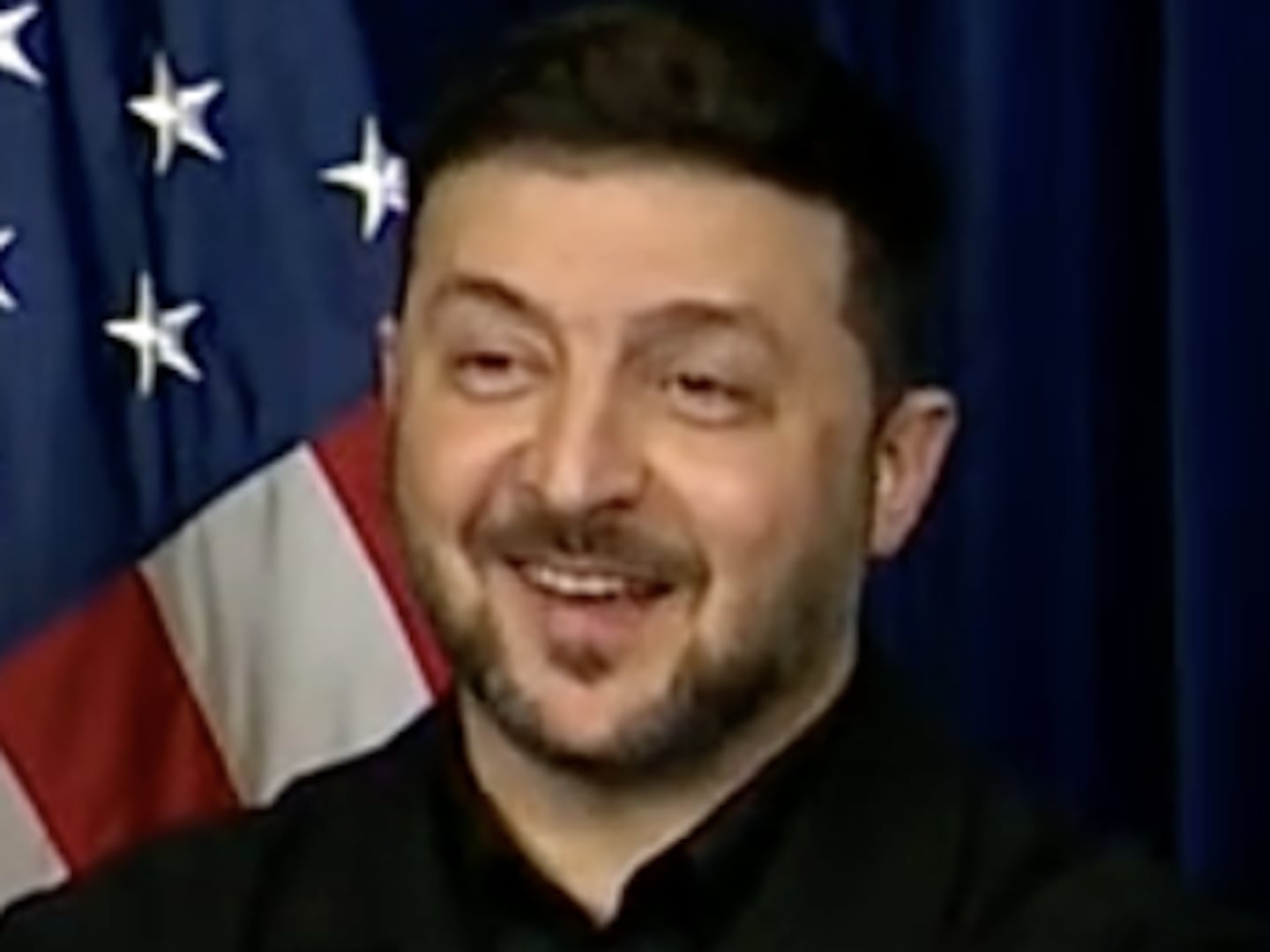PARIS—The golden domes would look at home on Moscow’s Red Square. There are five of them, onion-shaped and glistening in the sun, each one bearing a cross—potent symbols of the Russian Orthodox Church. But here in front of them flows the Seine River. Behind them rises the Eiffel Tower. Down the street is the French foreign ministry, known as the Quai d’Orsay.
That much you can see.
What French and other Western intelligence agencies have been concerned about as they watched the building go up over the last six years is what you don’t see when you look at the just-inaugurated Holy Trinity Cathedral and Russian Orthodox Spiritual and Cultural Center.
French journalist Nicolas Hénin in his new book La France Russe notes that the building abuts an apartment used (at least until recently) by the French Secretary General of Defense and National Security, as well as the mail service of the French presidential palace.
An inter-ministerial note on the state of France’s intelligence agencies cited by Hénin observed that the cathedral domes, made of composite materials, could hide sophisticated listening devices, and since the “cultural center” enjoys diplomatic immunity, there’s no obvious way to get inside to look.
According to other sources, the French are now employing active countermeasures, just in case, and several Western embassies and enterprises have checked to make sure there is no line of sight contact between them and the domes.
It’s a strange spectacle, an obvious outpost of Mother Russia, even if all its aspects are benign, which was assumed to be the case when then-President Nicolas Sarkozy approved its construction in 2010. But since then, “benign” has become a word hard to associate with the Kremlin. So when Russian President Vladimir Putin was supposed to open the center here this month, the current French president, François Hollande, said he wouldn’t attend, and if he talked to Putin at all, his office declared, it would be about war crimes in Syria. Putin decided to postpone his visit more or less indefinitely.
Perhaps this seems like crazy neo-Cold War paranoia. High-tech spookery hiding behind onion domes on the Left Bank? Yet almost anything seems possible at a time when Putin has been using every conceivable means at his disposal to extend Russian influence and disrupt or discredit Western democracy in Europe, and, indeed, in the United States.
If there is a new cold war chill, it’s coming from the east. Putin, faced with a badly flagging economy and potential domestic discontent, is actively preparing his people for nuclear Armageddon, while in the United States, Republican presidential candidate Donald Trump, an avowed admirer of Putin’s “leadership,” warns that Democratic candidate Hillary Clinton’s talk about standing up to him will lead to “World War III.”
As The Economist pointed out last week, inside Russia,“The two main pillars of the Soviet state, propaganda and the threat of repression, have been restored.” The infamous KGB, which was humiliated and broken up 25 years ago, “has been rebuilt as the main vehicle for political and economic power.” Meanwhile, “reactionary restoration at home has led to aggression abroad,” with hybrid warfare against Georgia and Ukraine, and intimidation of the little Baltic states. All this even as Moscow has “attempted to undermine Euro-Atlantic institutions, backed right-wing parties in Europe,” and, as the The Economist, too, avers, “tried to meddle in America’s presidential elections.”
If Putin’s aggressive stratagems are a fairly recent revelation to Americans (or, at least, those Americans willing to pay attention), the basic tactics are old news in France and much of the rest of Europe, where Moscow has been active for a long time helping to underwrite with money and propaganda the wave of populism sweeping the Continent.
For nearly a decade, Russia has established ties with far-right parties in Eastern Europe, including Hungary’s Jobbik, Bulgaria’s anti-EU Attack movement, and Slovakia’s far-right People’s party.
The Eastern European far-right parties have returned the love, whether by supporting the 2008 Russian war against Georgia or by vocalizing support for Putin, as the Bulgarian Attack party has. In 2012, Attack’s leader, Volen Siderov, even popped over to Moscow to ring in Putin’s 60th birthday. Siderov also threatened to withdraw his party’s support from the coalition government if it supported further sanctions against Russia, following Russia’s annexation of Crimea.
However, in recent years Russian influence has been moving west. In a 2014 report, the Budapest-based research institute Political Capital argued that Russia’s meddling in political affairs of the European far right has become a “phenomenon seen all over Europe.” And earlier this year, The Telegraph reported that American intelligence agencies were planning a review of secret Russian funding of several European political parties. The specific parties weren’t named, but it is believed that European far-right groups such as Jobbik, the Northern League in Italy, and Greece’s Golden Dawn are among those to be investigated for having received Russian cash.
Most conspicuously, in 2014, after Russia took the Crimean peninsula from Ukraine and fueled a wider war in the east of that country, provoking heavy international sanctions, one prominent member of Marine Le Pen’s National Front went as an observer of the dubious Russian-Crimean referendum and pronounced it “legitimate.” A few months later, a Kremlin-controlled bank found €9 million ($10 million) to loan the cash-strapped Front, and at the beginning of this year the party treasurer admitted he was looking for another €27 million from the movement’s friends in Moscow.
Considering all this, one senior Western intelligence official told Hénin the idea that the domes of the new Russian Orthodox cathedral on the Seine are covers for electronic eavesdropping is “the stuff of fantasy!” But that’s only because the Russians have so many tools at their disposal in France and the West. The cathedral complex “is much more symbolic,” said the official. The Russians would have to be “absolutely stupid to install a listening capacity there,” he said.
And “absolutely stupid” they absolutely are not.
***
Nicolas Hénin, the author of La France Russe, is not just another hardworking journalist. The 40-year-old Frenchman has spent much of his career covering the Middle East and had an especially close view of totalitarian brutality when the so-called Islamic State held him hostage for 10 months in 2013 and 2014. Among his fellow captives was American journalist James Foley, the first U.S. hostage to die by the ISIS knife. Hénin’s book Jihad Academy tells the story.
When we talked last week about Russian actions in France, Europe, and the United States, the horrors of ISIS-land were in the background, but relevant still, since the infamy of ISIS is exploited by the Russians as a tool for their own ends. But more about that a bit later.
We met at Hénin’s request in Place de la République beneath the huge statue of Marianne. This was probably just a matter of convenience for Hénin, but literally and figuratively we talked in the shadow of the symbol of the French Republic where so many huge demonstrations against terror and oppression have gathered in recent years.
For more than an hour, we drank cappuccinos on the edge of the square in a café called Fluctuat Nec Mergitur, “storm-tossed but not sunk,” the ancient Latin motto of the city of Paris that became the watchwords of resistance to terror after the horrific attacks here on Nov. 13 last year. So there was a certain irony in our discussion of Putin’s twisted but often effective messages to the West.
“The key is to say we are declining countries because we don’t have moral values anymore,” Hénin explained. The message the Russians bring—a message they insinuate anywhere they can—is that “we are too open to ‘foreign’ influences”: too much immigration, too much Islam, too many LGBT rights, too much America. And not enough Russia, it would seem.
The story in France has its own particularities, but anyone who has watched the Trump campaign—which was once managed by Russian-crony-funded consultant Paul Manafort and continues to exploit Russian-hacked intelligence about the Democratic Party, including very probably the drips out of WikiLeaks—must see some striking similarities.
“In France, the Russians have a multi-faceted approach,” said Hénin. “If you are leftist, they will play on your anti-Americanism. If you are a businessman, they will attract you with the promise of huge contracts. If you are military, they will say, ‘We are the only ones in the modern world who know what it means to show muscle.’ If you are Christian, they will say, ‘We are sharing your fight against the secularism of the world.’”
Thus a figure like Marine Le Pen fits admirably into the Russian strategy. She may well be sincere when she says, as she did in an interview in the current issue of Foreign Affairs, “Strategically there is no reason not to deepen relations with Russia. The only reason we don’t is because the Americans forbid it.” But then again, it seems she wasn’t asked about the money from Moscow. When she has been, she blames the French government for making it impossible for her to get loans in her own country.
In any case the Russian criteria for supporting politicians in Europe and the United States, whether with money or propaganda or both, is not ideological in the old communist sense. It is, rather, based on the much older and more basic techniques of what used to be called “rabble-rousing.”
“A populist,” says Hénin, “has no political program as such. Their only approach is to say, ‘You are angry and you should be even more angry and I am the boss of the party of angry people. We will fire you up and once you are extremely angry you will vote for me because… I am the boss of the angry people.’”
The fury of the masses then disrupts and discredits the whole democratic system. Thus, Le Pen herself may never win the presidency of France, says Hénin, but “she is dictating the agenda to the old right, and to the moderate right.” Indeed, one now hears even Socialist President François Hollande and Prime Minister Manuel Valls starting to parrot National Front positions.
***
If one is to understand the Russian game in the West, it’s important to understand the way Putin tells his people they’ve been gamed by the West, feeding their fury and resentments. Presenting himself as the boss of the angry people in his own country, he has heightened hysteria and pared away freedoms to the point where Russia “has long since ceased to live by the rule of law,” as French academic Cécile Vaissié noted in her recent book, Les Réseaux du Kremlin en France.
Putin saw his own power and the power of his allies in the old Soviet bloc challenged by the Orange Revolution in Ukraine and other “color revolutions” over the last quarter century, and concluded these were not the work of popular discontent and a desire for Western economic and political freedoms, but conspiracies by the American and European secret services.
Likewise, while we have heard a great deal recently about Russian hacking—most likely Russian government-supported hacking—of emails and other communications, we’ve heard rather less about the hacking of high-level Russian communications by ill-defined groups like Anonymous International and a collective that calls itself Shaltai Boltai, or Humpty Dumpty in Russian.
Much of the information about Marine Le Pen’s National Front getting Russian money as a seeming quid pro quo for supporting the Crimea invasion in 2014 came from this group, for instance. It also carried out impish attacks like the hacking of Russian Prime Minister Dmitri Medvedev’s Twitter account in August 2014, when his 2.5 million followers thought they saw him tweet: “I’m resigning. I’m ashamed of this government’s actions. Forgive me.”
Again, it’s very unlikely that Putin thinks this is just the work of anarchic folks working out of their basements. He knows he has set up vast “troll farms” and cyber war operations ready to play dirty tricks on his rivals. He would assume the Americans and their allies have done just the same.
President Barack Obama, not to put too fine a point on it, warned Putin face to face at a summit in September that the United States had a greater defensive and offensive capacity in cyberspace than Russia could command, and would use it.
But Hénin argues against an illusion of equivalency. As he put it, “Putin will do shit and try to make people believe ‘the shit we do is because you do shit, too.’”
Thus if the Americans talk about the atrocities in Syria, Putin will bring up atrocities in Yemen to try to minimize his own crimes. And a lot of people buy that. “So, now,” says Hénin, in the French press you see, ‘Mosul will be another Aleppo,’” suggesting the American-supported offensive against ISIS in its Iraqi stronghold will be as savage as the Russian-backed Syrian offensive in a city where ISIS has virtually no presence.
That just isn’t so. “It is different when you systematically try to wipe out a population or force them into exile by destroying infrastructure, starting with hospitals,” says Hénin, who knows the situation on the ground all too well.
***
What direct lessons are there for Americans in the French and European experience with Russia?
“They want to use us against you,” says Hénin. “They want to use some of your own people against you. They want to identify the weaknesses inside.”
According to Hénin, the Russian leadership does not believe there is such a thing as a “civil society”—government of the people, by the people, and for the people. “But they believe that societies can be manipulated.” They focus on certain groups they think are easily swayed.
“They don’t believe in public opinion, they only believe in public manipulation,” says Hénin. “In the U.S. the group they mainly work on is angry white men.”
And then, added to the question of anger, there is the matter of terror.
Looking at the alleged Russian involvement with the hacking of the Democratic National Committee and the WikiLeaks drips, one might think the Kremlin has just about reached the bottom of its bag of dirty tricks. But the French know firsthand that’s far from the case.
On April 8, 2015, a devastating cyber attack targeted the French international television network TV5 Monde. All of its channels suddenly showed black screens and on the network’s social media accounts viewers found a message from the “CyberCaliphate.”
This was just three months after the French people had responded to the horrific terror attack on the offices of the satirical magazine Charlie Hebdo by proclaiming, “Je suis Charlie,” I am Charlie. Now the supposed CyberCaliphate proclaimed beneath the image of a man whose face was wrapped in a keffiyeh, “Je suIS IS”—I am the Islamic State (mixing French with English acronyms).
French government agencies were at first reluctant to attribute the attack, but by June of last year private cyber security firms had linked it to a group known by several different names: Pawn Storm, APT28, Sofacy, Sednit, and Fancy Bear—the same group identified hacking into the Democratic National Committee.
“Analysis of the data showed proof that the lines of code were written on Cyrillic keyboards, mainly during Moscow office hours,” writes Hénin.
One can imagine those cubicles and computer screens, and the click of the keyboards. All very 21st century. All very anonymous. But back in the 1940s, the British author Graham Greene had an appropriate name for such a place. He called it “The Ministry of Fear.”
One might think of that now, even here in Paris, looking at the golden domes and high walls of the Russian Orthodox Spiritual and Cultural Center.
